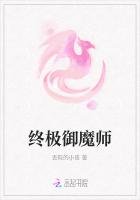Confucius emphasized that human beings exist in interactive relationships with others. According to his thought, a senior party is assumed to have authority with respect to his or her juniors; the junior party, in turn, was bound to be respectful and obedient toward his or her seniors. These obligations are expressed in the Chinese virtue known as li (礼), which means“right conduct in maintaining one’s place in the hierarchical order”and is currently used by the average Chinese to mean manners. One important way to be acceptable is to respect and accept each person’s need to maintain his or her face. Loss of face is not a matter of personal embarrassment; it also threatens to disrupt the integrity of the group and destroy long-established relationships.
Notes:1)sociologist社会学家;2)significance重要性;3)conflict冲突;4)authority权力;5)integrity完整
12.什么是“缘分”?
What is yuanfen?
Yuanfen (缘分) is a Buddhist-related concept that refers to the predetermined principle that dictates a person’s positive relationships and encounters such as the affinity among friends or lovers. It is always used in conjunction with two persons, and it can be defined broadly as the binding force that links two persons together in any relationship. Some believe that the driving force behind yuanfen are the actions done in previous reincarnation to emphasize a meant-to-be relationship.One may exclaim,“It is yuanfen that has brought us together!”When one encounters another repeatedly in various situations that seem beyond coincidence, one can refer to yuanfen. On the contrary, when two persons know each other but never get a chance to meet face-to-face, it can be said that their yuanfen is too weak. Often yuanfen is said to be the equivalent of“fate”or“destiny.”However, these words do not have the element of the past playing a role in deciding the outcome of the future.
Notes:1)predetermined先已决定的;2)affinity密切关系;3)binding有约束力的;4)conjunction结合;5)coincidence巧合;6)outcome结果
13.“客气”的重要性是什么?
What is the importance of keqi?
Ke means“guest”and qi means“behavior,”but when these characters are used together to form keqi (客气), they mean a lot more than“guest”and“behavior.”As used to describe behavior, keqi means politeness, courtesy, modesty, humility, understanding, well-mannered behavior and so on. All of these definitions are natural in the Chinese cultural context. Being humble refers not only to person of humility, it also means downplaying the status of one’s family, friends, employer, etc. The importance of keqi also indicates how sensitive Chinese are to any sign of arrogance or haughtiness. Chinese are expected to demonstrate keqi in all of their actions and especially toward foreign guests. As social conditions continue to change, the force of keqi is diminishing, but it is still discernible in the behavior of all Chinese, including overseas Chinese.
Notes:1)context上下文;2)downplay贬低;3)haughtiness傲慢;4)diminish减少
14.什么是“礼”?
What is the Chinese li?
China is well-known as an“ancient civilized country (文明古国)”or“nation of etiquette (礼仪之邦).”Throughout China’s long history the relationships between people in all classes were based on carefully prescribed forms of the Chinese li (礼) that covered virtually every aspect of conduct. Although the li has no precise English equivalent, it is understood as“a strict code of conduct,”“propriety,”“rituals”or“etiquett e.”
The origin of the li can trace back to remote antiquity. At that time people were inter-dependent for survival, and the li, to begin with, was a conduct performed without much significance. Gradually people accepted the“order of human relations (人伦秩序),”which might be considered the primitive li. As time went by, the primitive li rose to the height of human relations and ethical values.
At a later time Huang Di (黄帝), Yao (尧), Shun (舜), Yu (禹), and other sages founded specific proprieties for the purpose of restricting avarice and ending disorder. Meanwhile, they strictly observed the established proprieties. Their observation set an good example for their people to follow.
As early as 3,000 years ago, the Duke of the Zhou created rituals and music. Later, Confucius and other sages greatly contributed to the final foundation of the Confucius system that was a training and ongoing experience in such cultural arts as music, calligraphy and poetry, as part of a moral education.
After the Western Han Dynasty, The Etiquette and Rites (《仪礼》), The Rites of the Zhou Dynasty (《周礼》) and Record of Rites (《礼记》) were successively listed as text-books and required readings for scholars in ancient times. These classics detailed knowledge of hundreds of correct forms of etiquette. Training in this highly prescribed way of living was so pervasive that people were judged first, last, and sometimes always on how closely they followed these rules of behavior. The li came to be equated not only with learning in general, but with culture and morality. Accordingly, the li in the traditional“six arts (六艺)”was considered as the first art. Behind the li, came music (乐), archery (射), driving a chariot (御), learning (书) and mathematics (数).
The book of the Analects of Confucius says,“look not at what is contrary to li; listen not to what is contrary to li; speak not what is contrary to li; make no movement which is contrary to li (非礼勿视、非礼勿听、非礼勿言、非礼勿动).”
The following is a basic summary that is helpful to understand the Chinese li:
a. Originally, li meant“to sacrifice,”for divine beings or supernatural power. Later, it extended to mean an attitude of reverence.
b. The li is a series of conducts through which an inner reverence and devotion are genuinely expressed.
c. The li is a rite or a ceremony to be performed to show respects or admiration to people of esteem.















